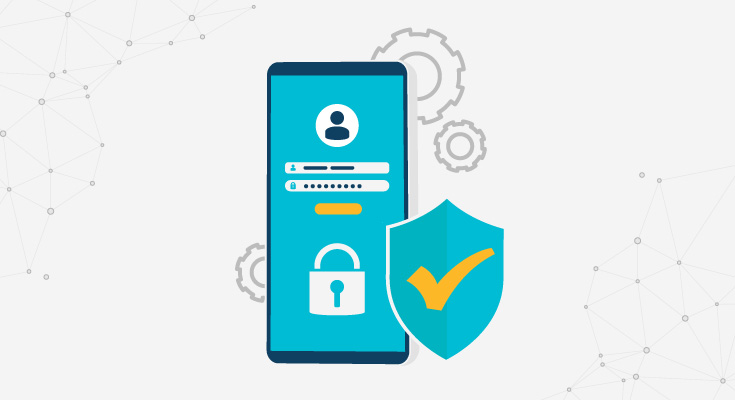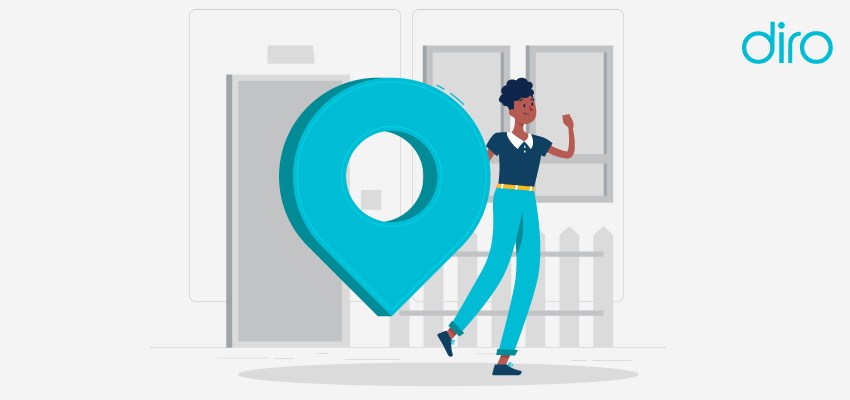Blockchain Technology for KYC Verification

Blockchain is a good solution for KYC verification, not a lot of people would agree with it but using blockchain for KYC is a crucial step in ensuring secure and fast compliance. With the pandemic changing industry standards, KYC automation stands to revolutionize payments, customer onboarding, and so on. It only makes sense to use the most secure technology, “blockchain,” for KYC compliance.
Blockchain is a decentralized ledger that can help financial institutions, banks, merchants, and so on to streamline the KYC verification process. Here’s why you should use blockchain technology for KYC verification.
Current Landscape of KYC Industry
It is easy for banks and financial institutions to authenticate customer identities using government-issued ID documents including driver’s licenses, social security numbers, passports, etc. However, the biggest challenge lies in establishing the authentication of other ID sources. Having inefficient KYC verification solutions also leads to an increased rate of financial fraud such as money laundering.
Regardless of the use case, verifying customer identities using Know Your Customer or KYC verification, is a long and monotonous process. Apart from a huge amount of paperwork, a lack of transparency in the procedure of the use of personal data collected from customers has led to a lack of trust in the process.
Regulatory bodies all over the world are trying their best to combat financial terrorism and money laundering, which is a highly expensive process. According to reports, firms all over the globe spend over $10 billion on AML compliance annually.
This volatile environment, with complexity and uncertainty, is the current landscape of KYC compliance. Blockchain KYC verification is a way to fix the problem of less trust and inefficient policies.
Changes in KYC Environment- Integration of Blockchain
For decades, financial institutions and regulatory bodies have been trying to find viable solutions for KYC and identity verification. Fortunately, blockchain technology came out as a solution.
Blockchain’s role in KYC verification is simple and elegant. As a decentralized ledger technology, blockchain technology will allow for the collection and storage of data from multiple governments and private data portals into a single immutable, secure database. Complying with KYC regulations and authenticating customer identities using blockchain technologies can be faster, easier, safer, and cost-saving than the traditional verification process.
How Can Blockchain Help with KYC Verification?
In the upcoming time, blockchain-based technologies will help bring down cost savings in an industry that utilizes ID verification. Let’s dive deeper into the benefits of blockchain technology for KYC verification:
1. Distributed User Data Collection
A KYC verification system based on blockchain technology will aid financial institutions in enhancing the ID verification process. This is because currently the data is collected and sorted with a centralized system. Access to this data requires KYC providers to share their customer data with companies needing access to it.
With the integration of a blockchain solution to handle the KYC process, customer data for verification is available on a decentralized network and then can be accessed by third parties directly after permission has been given.
2. Centralization of Controls and Risks
By limiting human interference in the KYC and customer verification process, it is easy for FIs to reduce the risk of fraud to a certain extent. This can happen by achieving standardization within the industry overnight. Blockchain allows key regulator concerns to be solved, such as automating the AML customer risk rating process.
Blockchain-based KYC and AML systems have the potential to change industry tides and how banks and financial institutions tackle identity and onboarding.
3. Communication and Transparency
One of the biggest problems with the present KYC landscape is the lack of transparency between customers and businesses. Blockchain will facilitate active monitoring of customers from onboarding till the end of the business-customer relationship.
The immutable nature of blockchain is vital in building trust between all the parties involved in the KYC process. The ability to trust data stored on KYC blockchain software solutions removes the need for secondary validation processes or cross-checking.
Finally, a distributed ledger system makes the reporting and communication processes more efficient, thus saving time and money. Since involved parties can access reliable data, processes, mistakes, and fraud can be detected much more easily.
4. Suspicious Activity Reporting
Currently, doing verification checks during customer onboarding takes weeks at a time, this proves to be extremely expensive for businesses, and staying compliant becomes tougher with the growing costs.
With a shared ledger, where the data can be managed and accessed by all involved parties, the process of KYC could be easily monitored. Any change to the data of a user will be accessible by all parties, so it is next to impossible to conduct data fraud. Having instant access to a shared ledger will help institutions save time during fraud detection and reporting.
5. Comprehensive Authentication Process
A decentralized verification technology will help financial institutions quickly verify if a person is who he/she claims to be. This is vital for fraud prevention and compliance with KYC & AML regulations.
The level of security and trust offered by Blockchain technology reduces the risk of fraud in certain scenarios. It may be possible for fraudsters to get access to sensitive data if a customer’s device is stolen, but they won’t be able to change any data on the blockchain, which leads to fraud prevention. Blockchain KYC verification solutions can change the workflow of the banking industry drastically due to their immutability and increased level of customer satisfaction.













